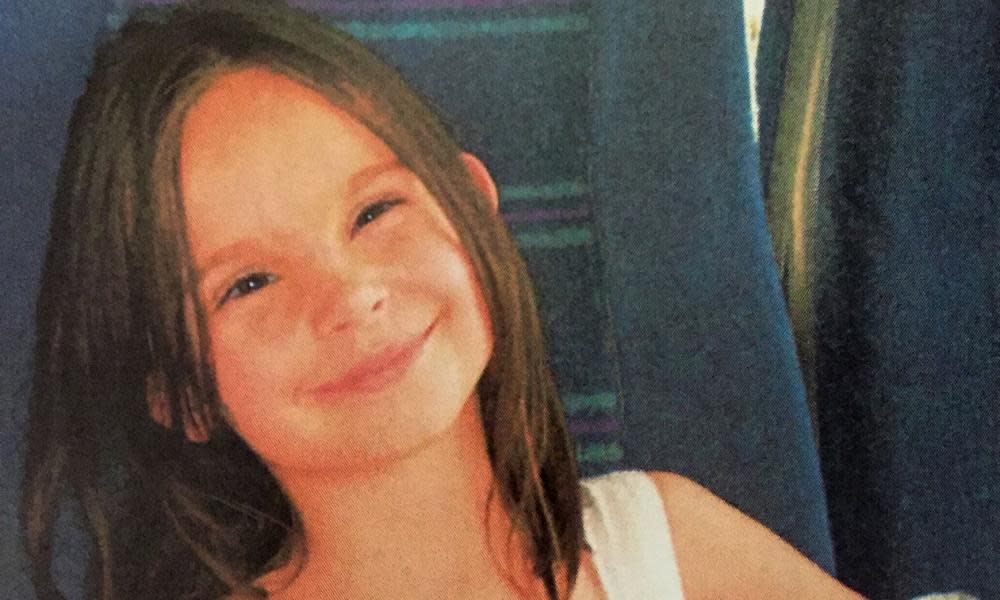Ellie Butler report warns of further deaths unless failures put right

Deaths like that of six-year-old Ellie Butler, who was murdered by her father, could keep happening unless failures in child protection are quickly corrected, a report obtained by the Guardian has warned.
In a prevention of future deaths report submitted to the government, retired high court judge Dame Linda Dobbs highlighted a series of failures by the agencies involved in Ellie’s case before she was murdered.
Dobbs, who was assistant coroner in the inquest, highlighted failures in communication between the agencies involved in Ellie’s care along with misunderstandings by some childcare professionals of the appropriate role of various agencies.
“In my opinion there is a risk that future deaths could occur unless action is taken,” she wrote. “In the circumstances it is my statutory duty to report these concerns.”
Ellie was beaten to death at her home in Sutton, south London, by her father, Ben Butler, less than a year after she was returned to her parents following a custody battle. She had been placed in the care of her grandparents as a baby after her father had been convicted of shaking her. The local authority had circulated a letter exonerating Butler after that conviction was quashed by the court of appeal.
Butler was convicted of Ellie’s murder in June 2016 and jailed for life with a minimum term of 23 years.
Dobbs’s report comes after the inquest’s determination earlier this month that Ellie was unlawfully killed – but that the authorities’ mistakes had not led to her death. That finding prompted Ellie’s grandfather, Neal Gray – whose daughter Jennie admitted perverting the course of justice by helping to cover up Ellie’s murder – to accuse the authorities of having “blood on their hands”.
In the document seen by the Guardian, Dobbs also said that although new guidance had been drawn up around communication and information-sharing between different agencies involved in cases like Ellie’s, it was not clear if the various agencies had acted on this guidance. “They should do,” she said.
She also criticised shortcomings from Sutton council, Ellie’s local authority, the children’s court guardian and the independent social work agency Services for Children (S4C). Of the latter she said: “It is concerning that a professional agency continued to provide recommendations in their capacity as independent experts to the court despite the fact that they did not have the material they expected they should have to make recommendations.”
Neal Gray welcomed Dobbs’s report but lamented the fact that the role of the family court had not been explored in the inquest. In family court proceedings relating to Ellie, Dame Justice Hogg exonerated Butler of having caused his daughter any harm and ordered that a letter of exoneration of Butler be circulated to 38 different agencies.
“What went so tragically wrong has been exposed to the public, which is what I set out to accomplish,” said Gray. “The role of the family court in decisions made or actions taken which inevitably led to Ellie being placed at risk of mortal harm was the ‘elephant in the room’ throughout the inquest.
“I would have liked to have heard from the judge [Hogg] herself. Even an informal approach to me by her such as a letter expressing her condolences to my family would have been appreciated. That would have been the humane thing to do.”
In her report, Dobbs questioned whether there were adequate arrangements in place nationally to provide a suitable framework for managing roles when independent social work agencies were commissioned to carry out work relating to children’s proceedings.
S4C admitted during the inquest that it was part of a system that failed Ellie. In her evidence, Catherine Harris of S4C said: “I think, with the benefit of hindsight, Ellie was let down by the entire system, and S4C was part of that system.”
Gray had considered calling for a public inquiry so that the role of the family court in cases like this one could be scrutinised, but he has now decided against this. “Finally, Ellie may be laid to rest,” he said. “I still miss her and think of her every day, but I think that if important lessons are learned from this tragedy then her death may not have been in vain.”
After the inquest, Christine Davies, the independent chair of the Sutton Local Safeguarding Children Board (LSCB), said: “Over the past two years, the main agencies in Sutton responsible for children’s welfare have worked hard to learn the lessons from Ellie’s death and put in place measures to ensure, as far as possible, that such a tragedy never occurs again.”
S4C has been approached for comment.

 Yahoo News
Yahoo News 
